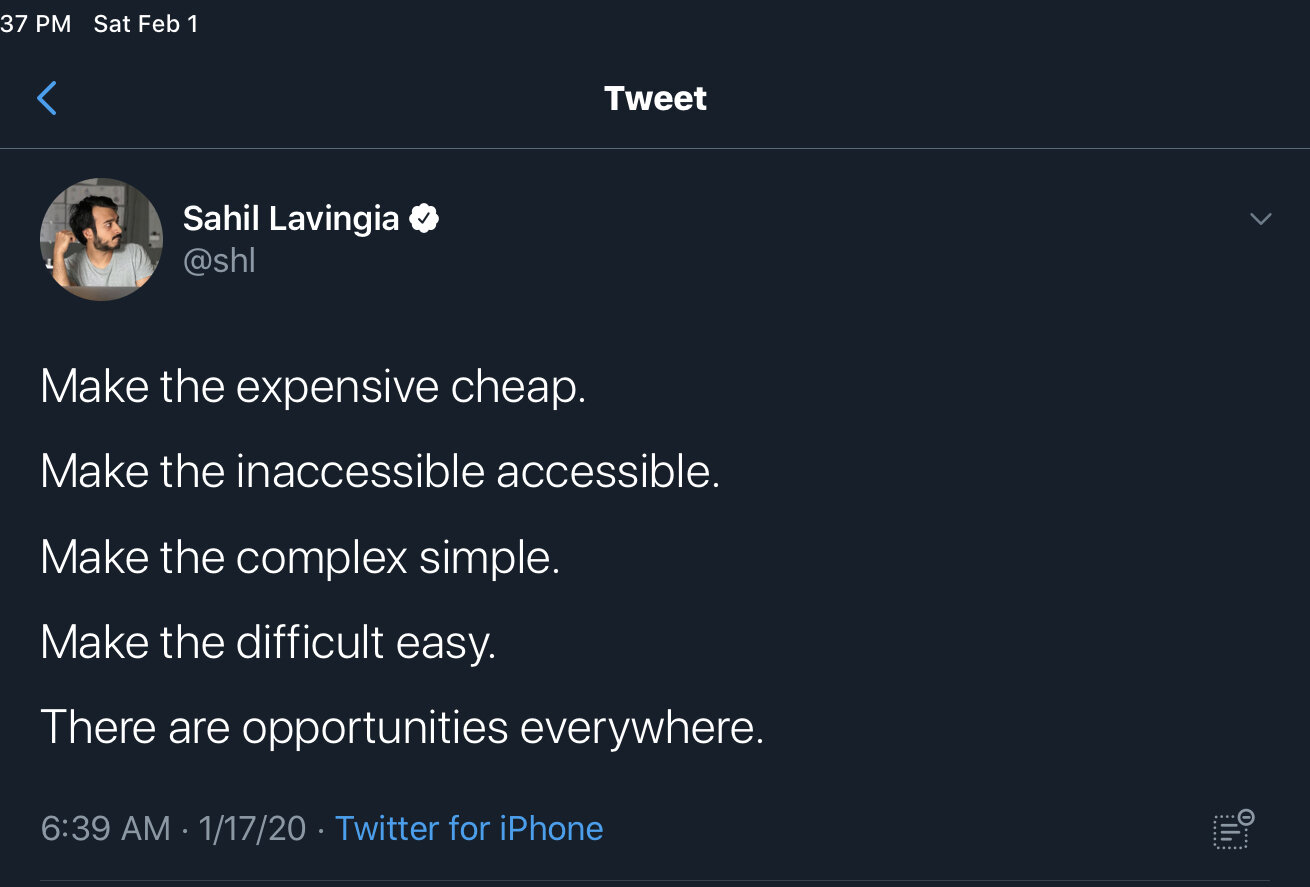Investment Criteria
One of the most opinionated investors I follow is Ketih Rabois. Below is a simple list he uses to qualify investments.
Investment Criteria
A guide to thinking through investment opportunities by investor Keith Rabois.
I’ve been investing since I was 16 and while I’ve never formalized my investment criteria the questions Keith poses match the methodology and filters I use prior to purchasing a stock (public or private).
These criteria make sense for investors looking for atypical return profiles and do not apply if you’re looking for “safe” or predictable results.
What is anomalous?
What is special about this particular opportunity. How is the management team unique, what metrics stand out when compared to their peers, what advantages (distribution, cost of capital, experience area) are in place to make this an exciting venture?
What “secret” is the company predicated on?
This might have been inspired by Peter Thiel and his book Zero to One. The best companies are predicated by a secret. A secret is an understanding that the current reality is not optimized, given the available technology or resources. The answer to the question: what valuable company is nobody building is necessarily a secret. Something that is important but unknown, something hard but doable.
He argues this can only take you so afar and likely needs to be rethought after a few years.
A few examples from past investments :
“Netflix:
Most content will be streamed vs served through cable
Amazon:
The internet will provide endless opportunities. Taxing businesses via a services layer (AWS) will be commonplace. ”
What could this be? Could this be one of the most important companies on the planet?
Keith is in search of outsized returns e.g 50-100x. In order to realize these returns he has to filter opportunities to those that serve large swaths of the population.
I find this exercise is not always easy to answer early on and requires some imagination to project out future possibilities.
What is the accumulating advantage?
There are several ways to think about an accumulating advantage. The question that needs to be answered is how does this venture get better every year? The competitive advantage should grow as the company grows. Some examples include network effects (e.g. Instagram, Facebook, Twitter) , data pools (Google) and economies of scale (GM, Amazon, Starbucks).
Can the founder attract the talent requisite to achieve the vision?
I’ve only been a CEO for a quarter but sourcing, identifying, selling and hiring talent should compose a large portion of any business leaders time. This is also a a method to score a management team and assess their ability to be a talent magnet.
You can test for this by reviewing a core team in the early days or by their ability to articulate a compelling vision and sell you, the press and others on it.
Why do we have a comparative advantage?
A comparative advantage can be defined as
““the ability of an individual or group to carry out a particular economic activity (such as making a specific product) more efficiently than another activity.””
In this case it can be translated to “Why do I or my investment fund produce good outcomes more efficiently with THIS deployment of capital versus THAT alternative, and why don’t our competitors (e.g other investors) produce as efficiently as we do in THIS space?”
This could be due to some specialization, network of contacts, experience within the sector etc etc.
Additional ideas from respected investors including Sahil, Sam Altman and Paul Graham.
The spectral signatures of the best companies I’ve invested in are remarkably similar. They usually have most of the following characteristics: compelling founders, a mission that attracts talented people into the startup’s orbit, a product so good that people spontaneously tell their friends about it, a rapidly growing market, a network effect and low marginal costs, the ability to grow fast, and a product that is either fundamentally new or 10x better than existing options.




